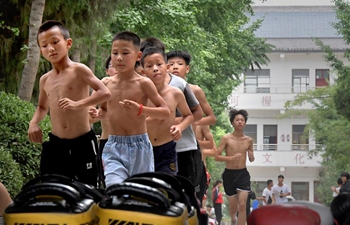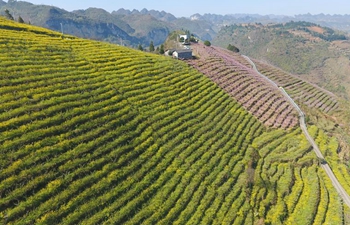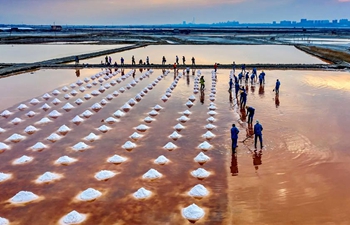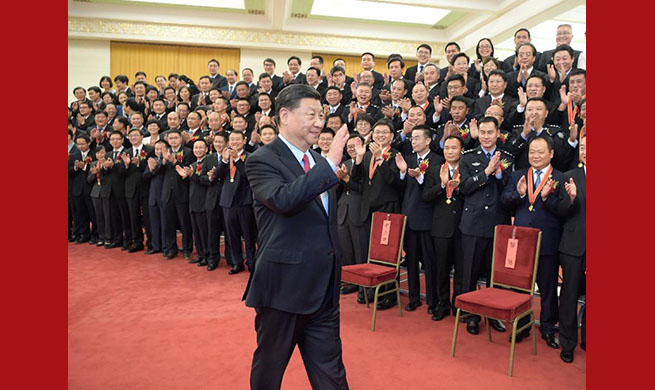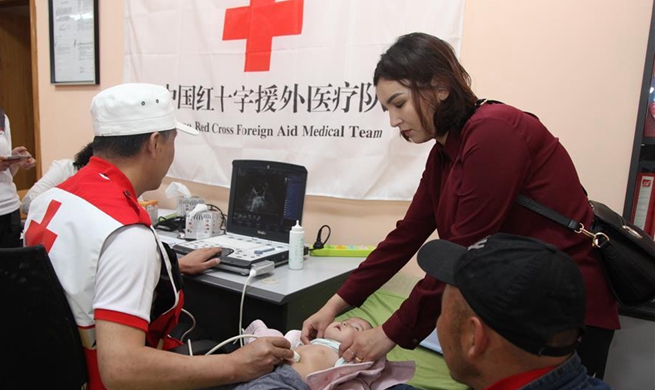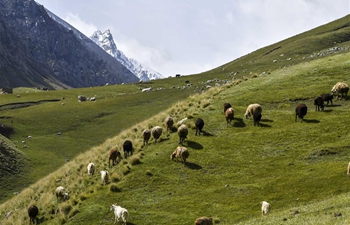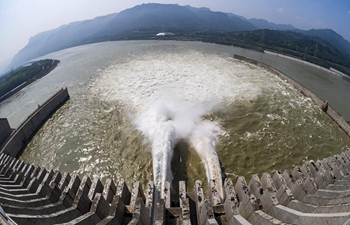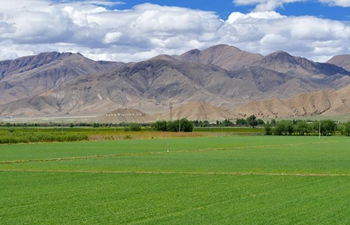NAIROBI, June 25 (Xinhua) -- Kenyan farmers have to contend with high cost of production as a biting cold weather hits several parts of the east African nation.
The cold weather, which normally kicks off in July, started in late May, worsening an already bad situation for farmers after the March-May rains failed.
The rains started in late April, instead of March, and ended mid-last month, according to the Meteorological Department.
Over the years, the cold weather initially affected mainly the capital Nairobi and the central and Rift Valley highlands, but has now hit most parts of the county, pushing hundreds of farmers to the edge as the east African nation grapples with the adverse effects of climate change.
The worst affected farmers include those keeping poultry, goats and sheep. Crop farmers, growers of potatoes, coffee, strawberry and tomatoes are also among those counting losses.
Goat, cattle and sheep farmers are currently grappling with increased cases of pneumonia.
According to Joseph Mugachia of GardenVet Services in Nairobi, the cold weather comes with rise in cases of pneumonia in farm animals making farmers spend more on drugs and treatment. The unlucky ones lose their animals.
He explains that normally, the cold weather leads to stress in a bird or animal's body system which makes livestock susceptible to attacks from pneumonia and coccidiosis.
Farmers also have to spend extra cash on feeds amid declined production since during the cold weather, animals and birds feed more as they need plenty of energy to keep themselves warm, instead of using it to produce more eggs or milks, according to Mugachia.
A majority of tomato farmers in Kenya, especially those growing the produce in the open field, are struggling with blight, a severe cold weather disease. The disease attacks leaves forming circular brown lesions. The leaves later turn yellow and fall off.
"If a farmer does not diligently spray crops like potatoes, tomatoes, eggplant and capsicum with chemicals at least once every week when the temperatures are too low, the crop dies," said Beatrice Macharia of Growth Point, an agro-consultancy.
She noted that the cold weather comes with numerous challenges for farmers among them the diseases, but pests thrive during warm season.
"Climate change is certainly making things tougher for farmers because at one point you are dealing with dry spell diseases and pests and soon after, the weather jumps to the other extreme. This is increasing the reliance on chemicals by farmers which is posing a threat to consumers and environment," she said.
The cold weather has hit production of tomatoes in Kenya affecting supply in markets, with a kilo going currently going at 0.70 dollars in the market, up from 0.50 dollars.
